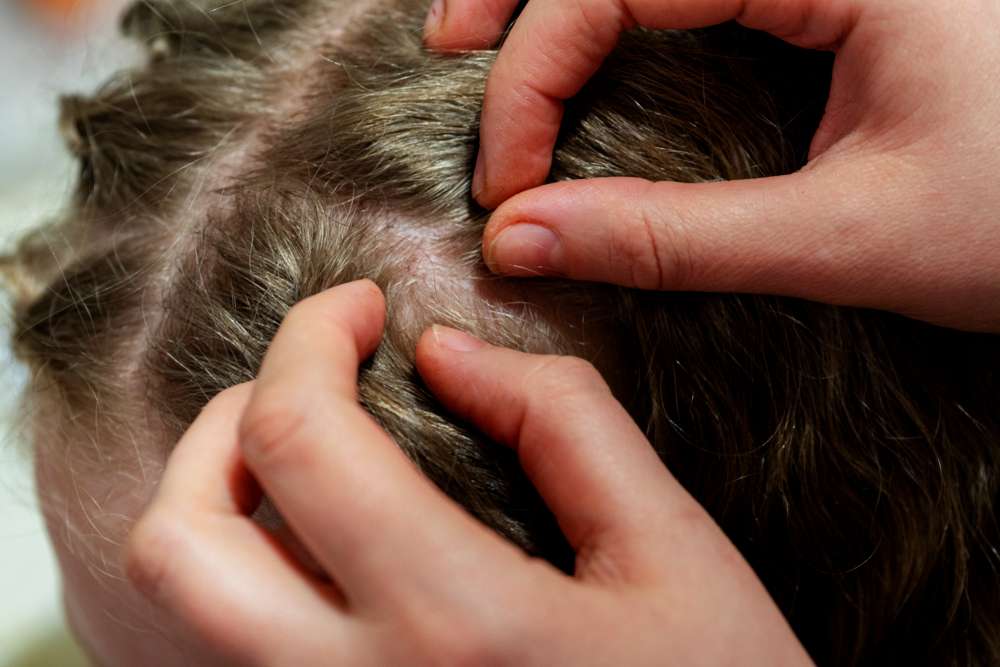Managing Scalp Psoriasis: Causes and Soothing Solutions
Struggling with constant itching, flaking, or thick patches on your scalp? It might be more than just dandruff. Scalp psoriasis is a common autoimmune condition that can cause discomfort, embarrassment, and even hair loss if left untreated. In this guide, we break down everything you need to know—from early symptoms and root causes to the most effective relief options available today. Whether you're newly diagnosed or looking for better ways to manage flare-ups, this is your roadmap to a healthier scalp.

What Does Scalp Psoriasis Look Like?
Scalp psoriasis typically appears as raised, reddish patches covered with silvery-white scales. These patches can be small and isolated or may merge to cover larger areas of the scalp. The affected areas often appear thick and crusty, with clearly defined edges. In some cases, the patches can extend beyond the hairline onto the forehead, back of the neck, or behind the ears.
How Does Psoriasis Start on the Scalp?
Scalp psoriasis develops when the immune system triggers skin cells to grow too quickly. While normal skin cells typically grow and shed over a month, psoriatic cells complete this process in just days, causing cells to build up on the skin’s surface. This rapid growth is influenced by several factors, including:
-
Genetic predisposition
-
Environmental triggers
-
Stress
-
Certain medications
-
Skin injuries or infections
What Are the Main Symptoms of Scalp Psoriasis?
The primary symptoms of scalp psoriasis include:
-
Dry, flaking skin that may resemble dandruff
-
Intense itching and burning sensations
-
Soreness or tenderness in affected areas
-
Temporary hair loss due to aggressive scratching
-
Bleeding when scales are removed
-
Scalp tightness and discomfort
What Treatment Options Are Available for Scalp Psoriasis?
Medical treatments for scalp psoriasis vary depending on severity and individual response. Common therapeutic approaches include:
-
Topical corticosteroids
-
Vitamin D analogues
-
Salicylic acid preparations
-
Tar-based shampoos
-
UV light therapy
-
Systemic medications for severe cases
-
Biologic drugs for resistant cases
How Can You Manage Scalp Psoriasis at Home?
Several self-care strategies can help manage scalp psoriasis symptoms:
-
Using medicated shampoos as directed by healthcare providers
-
Applying moisturizers to reduce scaling
-
Gentle removal of scales using specialized combs
-
Avoiding hot water and harsh hair products
-
Managing stress through relaxation techniques
-
Following a balanced diet
-
Protecting the scalp from excessive sun exposure
Treatment Options and Cost Comparison
| Treatment Type | Provider/Product | Estimated Monthly Cost |
|---|---|---|
| Medicated Shampoo | Over-the-counter brands | $15-30 |
| Prescription Topicals | Pharmacy-dispensed | $30-150 |
| Systemic Medications | Prescription-only | $200-500 |
| Biologics | Specialty pharmacy | $2,000-15,000 |
Prices, rates, or cost estimates mentioned in this article are based on the latest available information but may change over time. Independent research is advised before making financial decisions.
While scalp psoriasis is a chronic condition, proper management through a combination of medical treatments and lifestyle modifications can help control symptoms and improve quality of life. Regular consultation with healthcare providers ensures the most effective treatment plan for individual cases.
This article is for informational purposes only and should not be considered medical advice. Please consult a qualified healthcare professional for personalized guidance and treatment.




